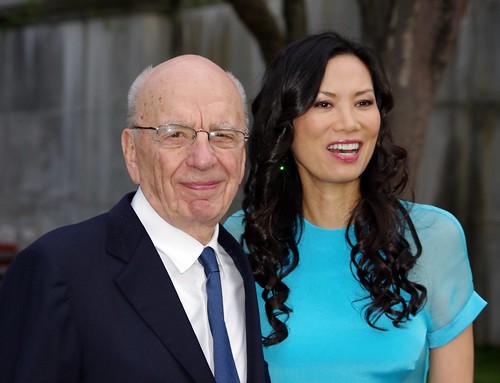I’m sharing this post with my readers because of the simple message of opportunity it carries for anyone facing divorce. If you know of someone about to face divorce, you would be doing him or her a great favor by sharing this article. You will help educate, inform, and provide the opportunity for choice and hope not only for the person you know, but also for their entire family.
This post is reprinted here with permission of Pauline Tesler, a Collaborative colleague who hails from California. Pauline is the co-founder and first president of the International Academy of Collaborative Professionals, frequent lecturer, and trainer.
Divorce as Temporary “Diminished Capacity”
You don’t need to be a lawyer or a psychologist to know that going through a divorce is one of life’s roughest passages. It can cause a myriad of emotional responses that can at times feel overwhelming and limit your ability to think clearly or make good choices. Unfortunately, this occurs at the very time you are called upon to make some of the most important decisions of your life.
For many people, the ending of a marriage is a time of temporary “diminished capacity.” By diminished capacity, we mean a period during which the person you thought you were on your best days—competent, thoughtful, considerate, reasonable, fair-minded, resilient—disappears for days or weeks at a time. The person you generally know yourself to be gets replaced temporarily by an unfamiliar and frightening self who can hardly summon up enough energy to get out of bed, wallows in fear, confusion or anger, or jumps to hasty conclusions in order to end the conflicting impulses about what to do and how to behave.
Recovering from the shock of a failed marriage involves moving through that initial period of diminished capacity, until gradually, more and more of the time, your pre-divorce “best-self” is back at the helm. Most people can expect to feel something like their old, pre-divorce selves in eighteen to twenty-four months from the time of the divorce decree, though it happens more quickly for some and more slowly for many. During that recovery period, it is quite common for people to veer suddenly and dramatically from day to day, or even hour to hour, between optimism and darkest pessimism, between cooperative good humor and frightening rage.
You may be experiencing such intense emotions as you come to terms with the possible—or actual—ending of your marriage. Most people do, at least some of the time. Keeping the focus on best intentions and good decision making in light of that reality is what collaborative divorce is all about.
Thinking clearly about what kind of divorce you want and how you’ll get there may be an unfamiliar concept to you. Most people are surprised to learn that the choices made right at the start of the divorce process have great impact on what kind of a divorce experience they will have. Even when people do understand the high stakes of those early choices, thinking clearly and making intelligent choices at that time can be very challenging, because divorce is an emotional wild ride like no other. Even very reasonable and civilized people can find unexpected, hard-to-manage emotions popping up at the most inconvenient times, particularly during the early months of a separation and divorce—exactly the time when you will be making decisions that determine what kind of divorce you are likely to get, and how your divorce will affect the rest of your life.
When you choose collaborative divorce, a team of professional helpers from the fields of law, psychology, and finance will provide coordinated support and guidance to help you and your partner slow down, reflect, focus on values, aspire to high goals, make good choices, work together constructively while avoiding court, plan for the future, and reach deep resolution. In our experience, this kind of coordinated professional help isn’t available anywhere else but in collaborative divorce. If you choose it, you and your spouse can count on professional advice and counsel that will:
- encourage both of you to remember your goal: the best divorce the two of you are capable of achieving
- educate and remind you about the divorce grief and recovery process so that you can choose to operate from your hopes rather than your fears
- help you focus on the future rather than the past, and on your deepest personal values and goals for the future rather than what the local judge is permitted to order
- make it possible for your financial advice to come from a financial expert, and your parenting advice to come from a child specialist, so that your lawyer is freed to do what lawyers do best: help you reach well-considered resolution
- keep you and your spouse focused on how your children are really doing, and how the two of you can help them move through the divorce with the least possible pain and “collateral damage”
- teach both of you new understanding and skills that will help you be more effective co-parents after the divorce than you may be capable of right now as your marriage ends
- make sure you and your spouse have all the information you’ll need to make wise decisions—not just information about the law, but also about finance, child development, grief and recovery, family systems, negotiating techniques, and anything else that will help you devise creative lasting solutions
- emphasize consensus and real resolution, not horse-trading and quick fixes
- help you maintain maximum privacy, creativity, and self-determination in your divorce.
Divorce is never easy, but making the collaborative choice helps you to move through a challenging life passage with dignity, intelligence, and respect.
[Excerpted and adapted from Introduction and Chapter One of
Collaborative Divorce: The Revolutionary New Way to Restructure Your Family, Resolve Legal Issues, and Move on with Your Life, by Pauline H. Tesler, J.D., and Peggy Thompson, Ph.D.]
To learn more about Collaborative Divorce here in Minnesota check out our website at
www.collaborativelaw.org.



 Rupert Murdoch’s divorce from his third wife is all but final. It seems they reached a settlement agreement that presumably divides their assets and details a parenting schedule for their two children. Who did what to whom? Who is the more capable parent? What is the settlement? What did the reported prenuptial and multiple postnuptial agreements say? We will never know and it is for the best.
While the details would have provided entertaining reading about how the other half live, the family will benefit from not having their opinions/positions about each other immortalized in an affidavit or court transcript. While I can only guess what went on behind closed doors, I believe the following quote from their publicist hints that they may have gone into negotiations with a shared goal of dissolving their marriage in a respectful manner, with the needs of their two daughters in the forefront.
“We move forward with mutual respect and a shared interest in the health and happiness of our two daughters,” the Murdoch publicist stated.
By not taking a position and sharing an interest, the Murdochs did not have to divulge the details that would have helped a judge to make a decision about their lives, and would have kept people entertained for hours. They took matters into their own hands and figured it out with a common goal, and thereby they were able to keep private matters private.
Thus, they gave their daughters the best chance of being happy, as they could go through life without knowing, hopefully, what their parents thought of each other. They are left knowing that their welfare guided their parents discussions and kept the matter out of court, and therefore, confidential.
Rupert Murdoch’s divorce from his third wife is all but final. It seems they reached a settlement agreement that presumably divides their assets and details a parenting schedule for their two children. Who did what to whom? Who is the more capable parent? What is the settlement? What did the reported prenuptial and multiple postnuptial agreements say? We will never know and it is for the best.
While the details would have provided entertaining reading about how the other half live, the family will benefit from not having their opinions/positions about each other immortalized in an affidavit or court transcript. While I can only guess what went on behind closed doors, I believe the following quote from their publicist hints that they may have gone into negotiations with a shared goal of dissolving their marriage in a respectful manner, with the needs of their two daughters in the forefront.
“We move forward with mutual respect and a shared interest in the health and happiness of our two daughters,” the Murdoch publicist stated.
By not taking a position and sharing an interest, the Murdochs did not have to divulge the details that would have helped a judge to make a decision about their lives, and would have kept people entertained for hours. They took matters into their own hands and figured it out with a common goal, and thereby they were able to keep private matters private.
Thus, they gave their daughters the best chance of being happy, as they could go through life without knowing, hopefully, what their parents thought of each other. They are left knowing that their welfare guided their parents discussions and kept the matter out of court, and therefore, confidential.  Choosing an attorney to represent you in a divorce proceeding at first may sound fairly straightforward. Too often I see this critical step not being given the attention it deserves. Sometimes it is simply a friend, relative or co-worker who refers someone who they felt or heard was good. While everyone means well, I suggest they probably don’t know what your goals and interests are for your divorce. They don’t know if a particular attorney is a good fit for you.
Sometimes a client will find the first attorney who tells them what they want to hear. This often is a big red flag. Ultimately, only you will be able to decide who the best fit may be for your circumstances. I hope this three part series of posts on the importance of choosing an attorney, issues to consider when choosing an attorney, and finally some questions to ask a divorce attorney, will provide you with some valuable insights.
I believe choosing an attorney is the third most important decision you will make on your journey to get unmarried. Remember in The first post of “Getting Unmarried” the most important decision is deciding to get unmarried in the first place. In Part II, I wrote the second most important decision is to research and decide “How to get unmarried;” essentially deciding on the divorce process that you feel–and hopefully your spouse feels–will accomplish the goals you both want to achieve.
The third most important decision I’ll cover in this first of a three part series will be on the importance of choosing an attorney for yourself and equally as important if not more important is who your spouse decides to hire as an attorney. But let’s put first things first. In my way of thinking, you can’t begin to choose an attorney until you first, decide to get unmarried and, secondly, decide what type of divorce process you and your spouse want to use.
Provided you have made these first two decisions, let’s make an assumption that both you and your spouse will want an attorney. If you have children from your marriage and or have significant assets and/or liabilities to ultimately allocate between you and your spouse in a property settlement, I strongly encourage everyone with these circumstances to be represented by an attorney. Let me disclose here, I am not an attorney. Too many do it yourself divorce packages often result in repeated appearances in court and end up being significantly more costly to the clients down the road. Leaving it to guesswork or not giving your property settlement the attention it deserves can be costly. Remember your marriage may not last forever but your property settlement will.
If you have children let me share this quote by Neil Postman, an American writer and professor, with you. “Children are the living messages we send to a time we will not see.” When children are involved they will be watching closely for the messages you and your spouse send to them about your divorce. They will live and carry those messages throughout their lifetime.
For these reasons, give careful and thoughtful consideration to the process you choose for your divorce and the attorneys both you and your spouse end up hiring. In the second part of this series, I outline important issues to consider when choosing an attorney.
Choosing an attorney to represent you in a divorce proceeding at first may sound fairly straightforward. Too often I see this critical step not being given the attention it deserves. Sometimes it is simply a friend, relative or co-worker who refers someone who they felt or heard was good. While everyone means well, I suggest they probably don’t know what your goals and interests are for your divorce. They don’t know if a particular attorney is a good fit for you.
Sometimes a client will find the first attorney who tells them what they want to hear. This often is a big red flag. Ultimately, only you will be able to decide who the best fit may be for your circumstances. I hope this three part series of posts on the importance of choosing an attorney, issues to consider when choosing an attorney, and finally some questions to ask a divorce attorney, will provide you with some valuable insights.
I believe choosing an attorney is the third most important decision you will make on your journey to get unmarried. Remember in The first post of “Getting Unmarried” the most important decision is deciding to get unmarried in the first place. In Part II, I wrote the second most important decision is to research and decide “How to get unmarried;” essentially deciding on the divorce process that you feel–and hopefully your spouse feels–will accomplish the goals you both want to achieve.
The third most important decision I’ll cover in this first of a three part series will be on the importance of choosing an attorney for yourself and equally as important if not more important is who your spouse decides to hire as an attorney. But let’s put first things first. In my way of thinking, you can’t begin to choose an attorney until you first, decide to get unmarried and, secondly, decide what type of divorce process you and your spouse want to use.
Provided you have made these first two decisions, let’s make an assumption that both you and your spouse will want an attorney. If you have children from your marriage and or have significant assets and/or liabilities to ultimately allocate between you and your spouse in a property settlement, I strongly encourage everyone with these circumstances to be represented by an attorney. Let me disclose here, I am not an attorney. Too many do it yourself divorce packages often result in repeated appearances in court and end up being significantly more costly to the clients down the road. Leaving it to guesswork or not giving your property settlement the attention it deserves can be costly. Remember your marriage may not last forever but your property settlement will.
If you have children let me share this quote by Neil Postman, an American writer and professor, with you. “Children are the living messages we send to a time we will not see.” When children are involved they will be watching closely for the messages you and your spouse send to them about your divorce. They will live and carry those messages throughout their lifetime.
For these reasons, give careful and thoughtful consideration to the process you choose for your divorce and the attorneys both you and your spouse end up hiring. In the second part of this series, I outline important issues to consider when choosing an attorney.  Unmarried and have children? You may be interested to know that “Collaborative Divorce” is not just for divorce. Learn how the collaborative process can help you.
First, it may be relieving to know that you are not alone. There are some interesting recent statistics related to marriage and children. Nearly half of children in America are born outside of marriage. And, for women under 30, most children are born outside of marriage.
Whether you are married or not, if you separate from the other parent, you’ll need to figure out custody, parenting time and financial support issues related to your children. These are legal issues that should be finalized in a court order, either by agreement reached in the collaborative process or mediation, or by a court decision after a trial.
There is a great online resource related to unmarried parents (useful to both unmarried mothers and unmarried fathers), available here for free from Legal Services State Support.
The collaborative process is designed to increase communication and trust while helping you resolve these issues.
You might be interested to know that this website, collaborativedivorceoptions.com, is part of the Collaborative Law Institute of Minnesota and the articles are written by it’s members. Keep in mind that divorce is only one type of legal issue where the collaborative process is used. Why do I point this out? Because it’s important to know that Collaborative Law is not just for divorce. If you aren’t married but you have children, it’s important to know that you can still participate in a collaborative process rather than taking your case to court.
The same collaborative principles apply whether you are married or not. In the collaborative process, you each hire attorneys trained in the collaborative process and you all sign an agreement not to go to court. Then you have a series of joint meetings where you all meet together, many times with other neutral professionals such as a coach, child specialist or financial specialist.
In the end, you just file your agreement with the court rather than having a trial or other court hearings. That’s it. You never have to set foot in a courtroom and the process is structured and respectful.
Unmarried and have children? You may be interested to know that “Collaborative Divorce” is not just for divorce. Learn how the collaborative process can help you.
First, it may be relieving to know that you are not alone. There are some interesting recent statistics related to marriage and children. Nearly half of children in America are born outside of marriage. And, for women under 30, most children are born outside of marriage.
Whether you are married or not, if you separate from the other parent, you’ll need to figure out custody, parenting time and financial support issues related to your children. These are legal issues that should be finalized in a court order, either by agreement reached in the collaborative process or mediation, or by a court decision after a trial.
There is a great online resource related to unmarried parents (useful to both unmarried mothers and unmarried fathers), available here for free from Legal Services State Support.
The collaborative process is designed to increase communication and trust while helping you resolve these issues.
You might be interested to know that this website, collaborativedivorceoptions.com, is part of the Collaborative Law Institute of Minnesota and the articles are written by it’s members. Keep in mind that divorce is only one type of legal issue where the collaborative process is used. Why do I point this out? Because it’s important to know that Collaborative Law is not just for divorce. If you aren’t married but you have children, it’s important to know that you can still participate in a collaborative process rather than taking your case to court.
The same collaborative principles apply whether you are married or not. In the collaborative process, you each hire attorneys trained in the collaborative process and you all sign an agreement not to go to court. Then you have a series of joint meetings where you all meet together, many times with other neutral professionals such as a coach, child specialist or financial specialist.
In the end, you just file your agreement with the court rather than having a trial or other court hearings. That’s it. You never have to set foot in a courtroom and the process is structured and respectful.  You are getting ready to tell your spouse about your divorce; Should you get an attorney?
On the one hand, you want to be protected. Going through divorce without an attorney can feel like entering a foreign country without a guide. During this difficult process it seems critical to have someone who is truly on your side.
At the same time, you have a fear that lawyers will stir things up and cause unnecessary acrimony and expense. Lawyers can mean court; and your instincts tell you that going to court, or even threatening court, could turn your divorce into an economic and emotional nightmare.
It would be great if you could have the best of both worlds. It would be wonderful if there was a legal expert on your side who will not stir things up; someone who could be your best friend without becoming your spouse’s worst enemy.
Today, in Minnesota, you have that option. It’s called Collaborative Practice. In Collaborative Practice you hire an attorney for settlement purposes only. Collaborative Attorneys are typically trained in ways to help guide you through your divorce that protect your interests without creating unnecessary acrimony. In a Collaborative case, your attorney and your spouse’s attorney are both prohibited from going to court, or even threatening court.
Collaborative attorneys in your community will also meet with you, at no charge, to explain more about the process and to help you learn more about whether Collaborative Practice is the best choice for you. To find a Collaborative attorney and to set up your free consultation, go to www.collaborativelaw.org.
You are getting ready to tell your spouse about your divorce; Should you get an attorney?
On the one hand, you want to be protected. Going through divorce without an attorney can feel like entering a foreign country without a guide. During this difficult process it seems critical to have someone who is truly on your side.
At the same time, you have a fear that lawyers will stir things up and cause unnecessary acrimony and expense. Lawyers can mean court; and your instincts tell you that going to court, or even threatening court, could turn your divorce into an economic and emotional nightmare.
It would be great if you could have the best of both worlds. It would be wonderful if there was a legal expert on your side who will not stir things up; someone who could be your best friend without becoming your spouse’s worst enemy.
Today, in Minnesota, you have that option. It’s called Collaborative Practice. In Collaborative Practice you hire an attorney for settlement purposes only. Collaborative Attorneys are typically trained in ways to help guide you through your divorce that protect your interests without creating unnecessary acrimony. In a Collaborative case, your attorney and your spouse’s attorney are both prohibited from going to court, or even threatening court.
Collaborative attorneys in your community will also meet with you, at no charge, to explain more about the process and to help you learn more about whether Collaborative Practice is the best choice for you. To find a Collaborative attorney and to set up your free consultation, go to www.collaborativelaw.org.